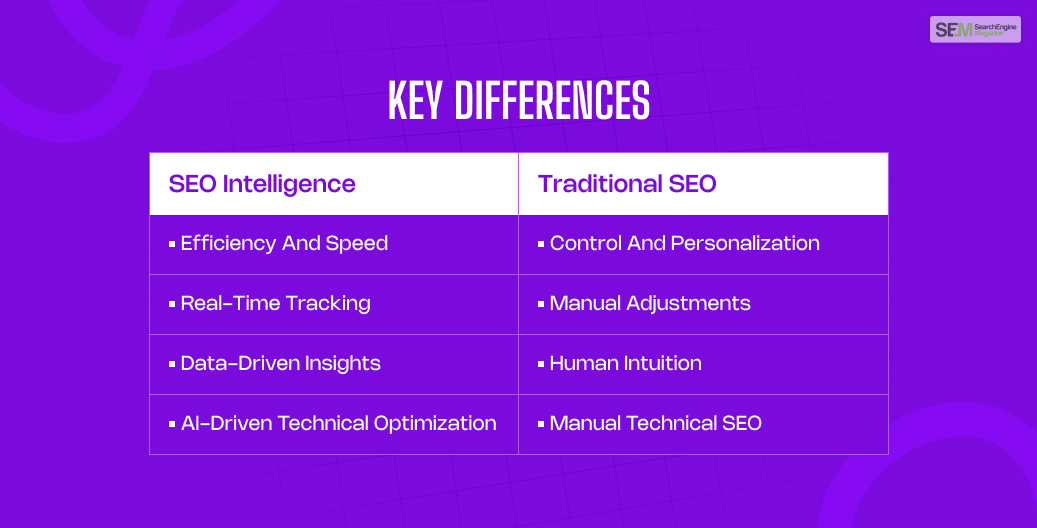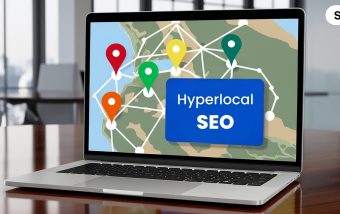How Data-Driven Hiring Reduces Costs and Improves Workforce Efficiency
Mar 29, 2025

Mar 29, 2025

Mar 29, 2025

Mar 29, 2025

Mar 29, 2025

Mar 29, 2025

Mar 27, 2025

Mar 27, 2025

Mar 25, 2025
Sorry, but nothing matched your search "". Please try again with some different keywords.


As ‘Search’ continues to evolve in 2025, the digital marketing industry’s growing obsession with AI-driven optimization is at the heart of conversation everywhere. Conventional methods deeply rely on tried-and-tested strategies – from building backlinks manually to technical SEO audits and keyword optimization.
In contrast, AI-powered SEO redefines optimization, leveraging artificial intelligence to automate real-time SEO tracking and backlink automation.
But which one is more suited to your business? Is building backlinks manually the right strategy for you? Or should you opt for backlink automation?
With SEO trends focussing more on the benefits of automating optimization and using AI-driven site audit tools, knowing the strengths, limitations, and USPs of both is the best way to find out which type of SEO is best for your business.
So, in this blog, I’ve compared SEO intelligence vs traditional SEO – exploring the key elements of both and examining each approach’s addition to the table.
Stay tuned.

AI-driven SEO and traditional SEO have their own set of unique advantages and limitations. As a result, understanding the key differences between both types of SEO is essential for building an effective digital marketing strategy for your business.
So, I’ve compared SEO intelligence vs traditional SEO against 4 parameters below. Let’s check them out:
Tradition SEO offers more control over link-building, keywords, and content. As a result marketing professionals have more flexibility to personalize optimization with just the right amount of human touch.
Moreover, such customization is beneficial for branding and addressing niche target audiences. However, it tends to get time-intensive. In contrast, AI-driven SEO focuses on automating any repetitive task such as link-building and keyword optimization.
With machine learning, SEO professionals can analyze vast amounts of data quickly, spitting trends and opportunities faster. This type of automation is perfect for businesses that need rapid adjustments, specifically during search algorithm updates.
AI offers real-time SEO tracking, allowing SEO professionals to instantly react to major changes in search trends and user behavior.
Moreover, AI-powered SEO tools offer insights and data that can help businesses streamline decision-making and problem-solving. This, in turn, makes it easy to stand apart in a competitive market.
However, traditional SEO primarily depends on manual adjustments. Now, manual adjustments are prone to slowing down reply times. So, while this offers brands relatively more control, it does require constant hardwood and efforts to stay ahead of the trends.
As a result, the manual approach in this case makes the whole process less efficient, especially while adapting to quick changes.
AI-driven SEO tools can analyze user behavior with the right precision to offer actionable insights. This, in turn, will enhance your website’s performance analytics.
Moreover, AI uses NLP or natural language processing SEO. NLP enables a deeper content relevancy with an understanding of the meaning and context of queries. Interestingly, this is very valuable for voice-based search optimization.
In contrast, traditional SEO depends on the creativity and intuition of digital marketing professionals.
This is particularly useful in fields where the business demands content that can resonate deeply with readers on a human level. Typically, this holds true for niches where AI-powered content fails to grasp a nuanced understanding of what your target audience wants.
Artificial intelligence has competently changed technical SEO with automation. Today, you can automate so many technical tasks like scheme markup and website audit.
Moreover, with the help of automated audits, you can spot improvement areas and existing errors faster. Also, AI-driven keyword research tools suggest keywords based on recent trends, choosing to optimize technical strategies quicker than manual methods.
In comparison, traditional SEO involves manual oversight for technical audits such as website structure optimization.
Now, this tends to get time-consuming and exhausting. However, at the same time, this approach also guarantees that every element is precisely aligned with the website’s user needs and goals.

Choosing between AI-driven and traditional SEO strategies typically depends on your specific business goals, budget, and needs. So, in this context, I’ve broken down how each approach caters to different types of businesses effectively:
For most small businesses, a traditional approach to SEO offers both control and affordability:
AI-driven SEO offers efficiency and scalability, perfect for large enterprises with huge content demands:
Businesses that operate within niche markets can easily benefit the most from hybrid strategies that leverage both traditional and AI-driven SEO:
The difference between the two is simple: while traditional SEO is valuable for any business that focuses on needing control, creative flexibility, and human oversight, AI-driven SEO shines in scalability and efficiency.
In addition, traditional SEO is great for user intent optimization and building credibility with content that typically resonates with specific target audiences.
In contrast, by leveraging machine learning and automation, AI improves content optimization, real-time SEO tracking, and data-driven insights.
With SEO advancing rapidly in 2025, the choice between SEO intelligence vs traditional SEO has become more about collaborating and less about competing. While each approach has its own unique strengths, none of them is free of limitations.
But when used together, the two form a balanced and powerful strategy that is suitable for meeting the evolving digital goals and demands of businesses in 2025.
Barsha Bhattacharya is a senior content writing executive. As a marketing enthusiast and professional for the past 4 years, writing is new to Barsha. And she is loving every bit of it. Her niches are marketing, lifestyle, wellness, travel and entertainment. Apart from writing, Barsha loves to travel, binge-watch, research conspiracy theories, Instagram and overthink.
View all Posts
How Data-Driven Hiring Reduces Costs and Impr...
Mar 29, 2025
Why Headless CMS Works Well for EdTech Startu...
Mar 29, 2025
Building Topical Authority to Excel in Search...
Mar 29, 2025
The Impact of Professional Recruitment Servic...
Mar 29, 2025
The 13 BEST Quillbot Alternatives In The Mark...
Mar 29, 2025

